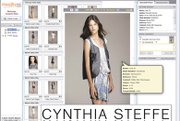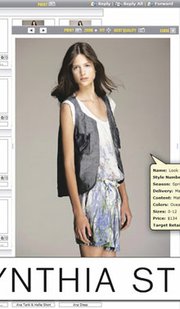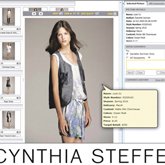Visuality Creates Virtual Showrooms
New York–based software company Visuality will make strides toward creating the closest thing possible to building a virtual showroom, according to Joe Shohfi, the company’s co-founder and chief executive.
This summer, the software company will debut VisualityPro, the latest update of the company’s Web-based fashion presentation tool. Visuality made its reputation as a place where showroom salespeople, brands and retailers can go over collections and do business online. The new program will offer a palette of features for showroom managers and buyers. “It will be sending virtual lookbooks with new follow-up tools,” he said. With the new features, people will be able to know when clients are on a page and when they are viewing their products, Shohfi said.
Visuality debuted in the United States in 2006 with the mission of helping the visually based fashion industry have an easier time communicating online. Shohfi believed there was a need for user-friendly fashion technology that emphasizes visuals, which, he said, are crucial to selling fashion. So, he sought to create a platform that would be as easy to use as most e-mail programs but would not clog up e-mail boxes with linesheets. “The whole system is based around pictures and collaborating around product pictures. With these pictures, you add information, tag information, leave comments, and update pictures and edit the pictures,” he said.
The Visuality process starts with an e-mail, said Liza Stewart, president of the Los Angeles–based Liza Stewart showroom. She will send an e-mail with a Visuality link and clients log on to the secure Web site and check out online lookbooks and different color palettes for clothes. Buyers and salespeople can communicate on the Visuality page with postings and comments.
“Another good thing about Visuality is we can constantly update it,” Stewart said. “We can upload new product looks to it and remove cancelled styles.”
Visuality customers have included True Religion Brand Jeans, Alternative Apparel, Miss Me Jeans, Affliction and Diesel, according to the company.—Andrew Asch
























